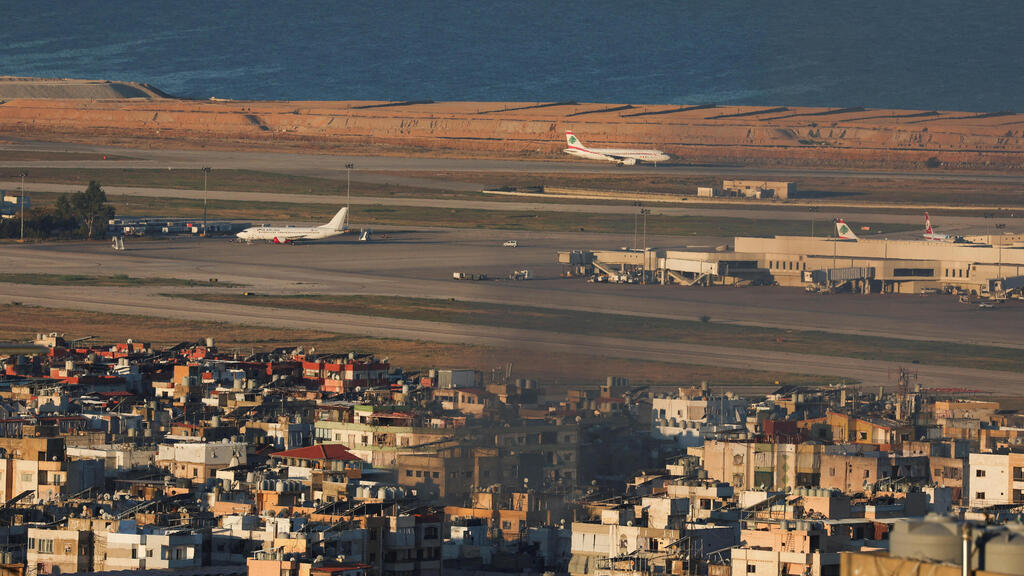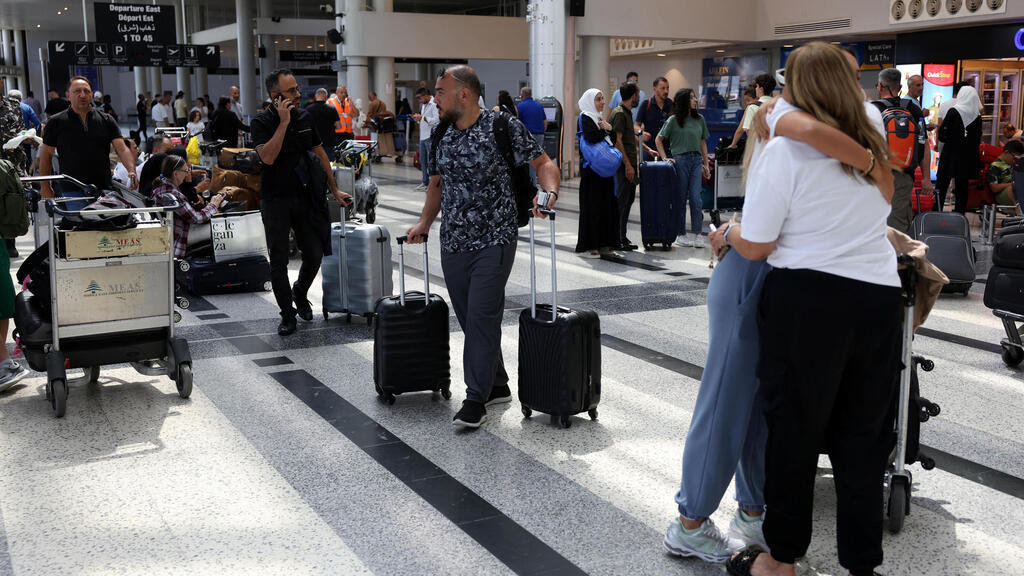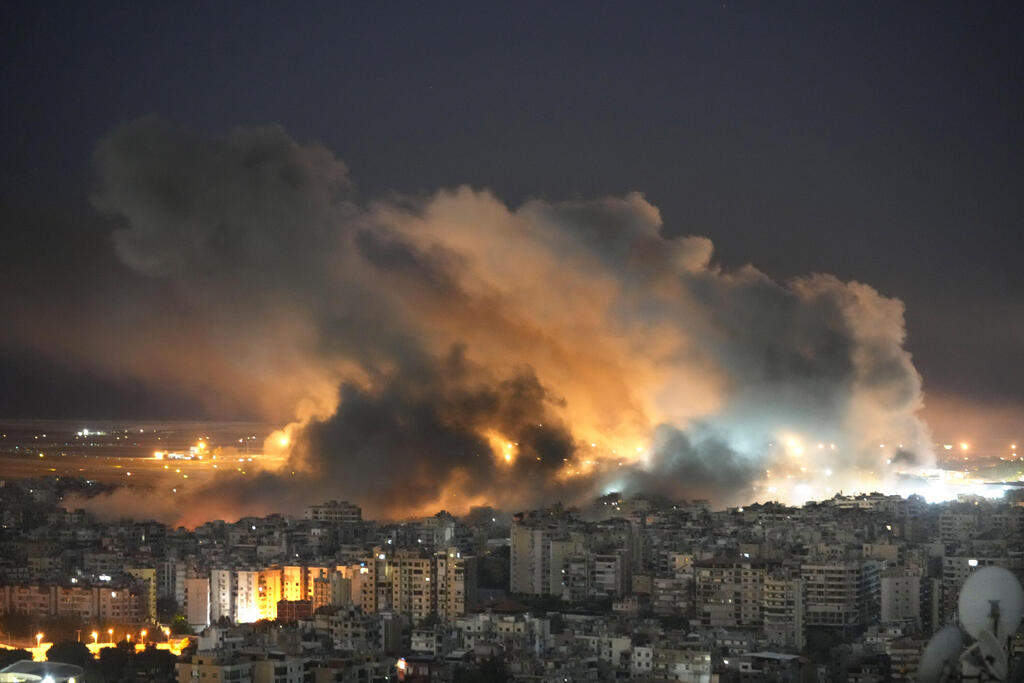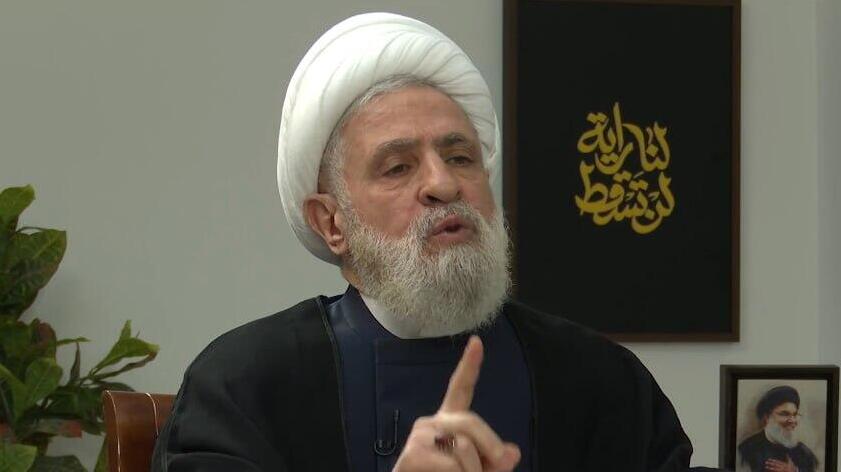Getting your Trinity Audio player ready...
For years, Beirut’s Rafic Hariri International Airport was widely seen as a Hezbollah stronghold. The Shiite terror group used Lebanon’s only international airport for smuggling operations and to assert its dominance over the country.
But recent months have brought a dramatic shift: the U.S.-backed Lebanese government has taken control of the facility and with Hezbollah's weakening grip, smuggling through the airport has reportedly stopped.
According to The Wall Street Journal, dozens of employees suspected of ties to Hezbollah were fired, smugglers have been arrested and law enforcement has returned. Flights from Iran have been banned since February, when Tehran allegedly planned to smuggle millions of dollars in cash to Hezbollah aboard a plane. The airport has since adopted new screening technologies, including artificial intelligence.
“You can feel the difference,” Lebanese Prime Minister Nawaf Salam told the outlet. “We’re doing better on smuggling for the first time in the contemporary history of Lebanon.”
The airport remains Lebanon’s primary gateway to the outside world. Its longtime association with Hezbollah made it a potential Israeli target, though it wasn't bombed during the current war — unlike in the 2006 Lebanon War.
During the ongoing fighting with Hezbollah, Israeli officials accused Iran of using the airport to transfer cash to the group and warned planes suspected of doing so, prompting some to turn back mid-flight.
U.S. and Israeli officials told the Wall Street Journal they welcomed Lebanon’s efforts to curb Hezbollah’s control of border crossings and the country’s south but stressed more work is needed.
Get the Ynetnews app on your smartphone: Google Play: https://bit.ly/4eJ37pE | Apple App Store: https://bit.ly/3ZL7iNv
American sources cited cautious optimism, with one senior official involved in ceasefire oversight saying, “There is reason for hope here. It has only been six or seven months, and we have stepped to a place that I am not sure I thought was achievable back in November.”
A senior Lebanese security official told the paper that authorities recently intercepted a shipment of over 20 kilograms (44 pounds) of gold at the airport intended for Hezbollah. Hezbollah operatives reportedly admitted they’re struggling to move funds through the airport.
Footage of IDF strike on Hezbollah weapons cache
(Video: IDF Spokesperson's Unit)
The group has also lost one of its key smuggling corridors — Syria — following the collapse of Bashar Assad’s regime. Since then, Israel has repeatedly targeted smuggling routes along the border to prevent weapons and aid from reaching Hezbollah.
Hezbollah MP Ibrahim Mousawi acknowledged that the terror group has lost operatives, commanders and a significant amount of weaponry. Still, he insisted Hezbollah’s military wing would rearm if needed. “Where there is a will, there is a way,” he said.
Ghassan Hasbani, a member of Lebanon’s anti-Hezbollah bloc, described the airport before the war as “a main port of entry for supporting whatever para-state activities were happening.” He said authorities had long turned a blind eye.“In the absence of international attention and pressure to do something about it, nothing much was done.”
In response, Mousawi argued that claims of Hezbollah control over the airport were exaggerated: “We are part of the system, just like any other Lebanese constituency.”
Meanwhile, Lebanon is moving ahead with plans to develop a second airport in the country’s north — outside Hezbollah’s sphere of influence. The project would expand the Qlayaat airfield, currently used by the military and formerly open to civilian flights.
With the formation of the new government and Hezbollah’s declining political power, especially after it had previously blocked the project, momentum is growing. “They [Hezbollah] were the ones who did not want the Lebanese authorities to go for the airport. Now, things have changed,” Salam said.









